Apple Butter Crockpot Recipe
Apple Butter Crockpot Recipe
It happened as I came in from a quick shopping trip early morning a few weeks ago. I dropped an entire carton of apples. 16 of them to be exact. 16 REALLY good apples. Ugh, it's not a huge deal for me but the bruises make my kids pick another fruit instead leaving me with a surplus of apples. We are working hard towards zero waste so instead of keeping those apples a few more days to see if anyone ate them, we made this delicious, long-lasting slow cooker recipe of low-sugar apple butter in recipe crockpot which is amazing! We hope that this Apple Butter Crockpot Recipe post inspires you.
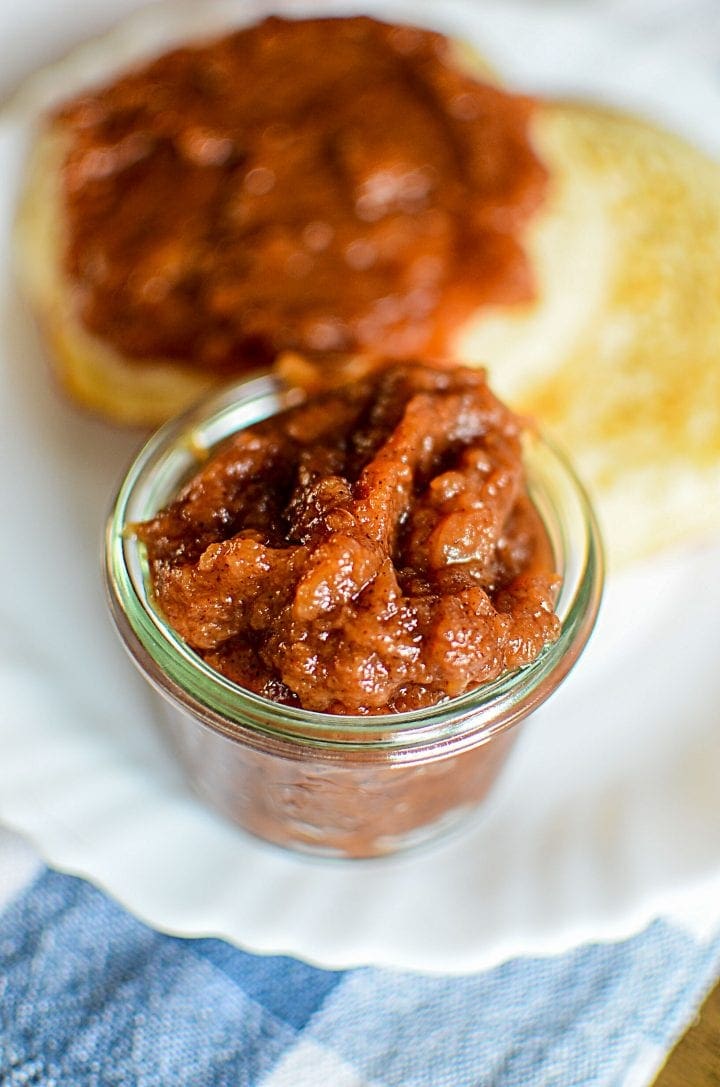

Apple Butter Crockpot Recipe
Ingredients
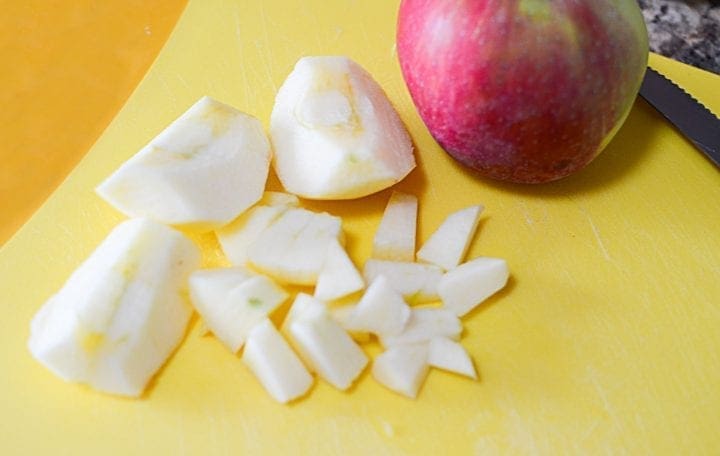
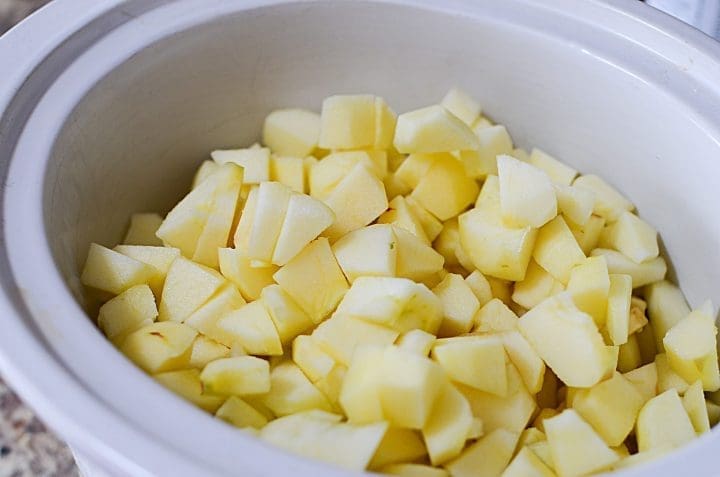
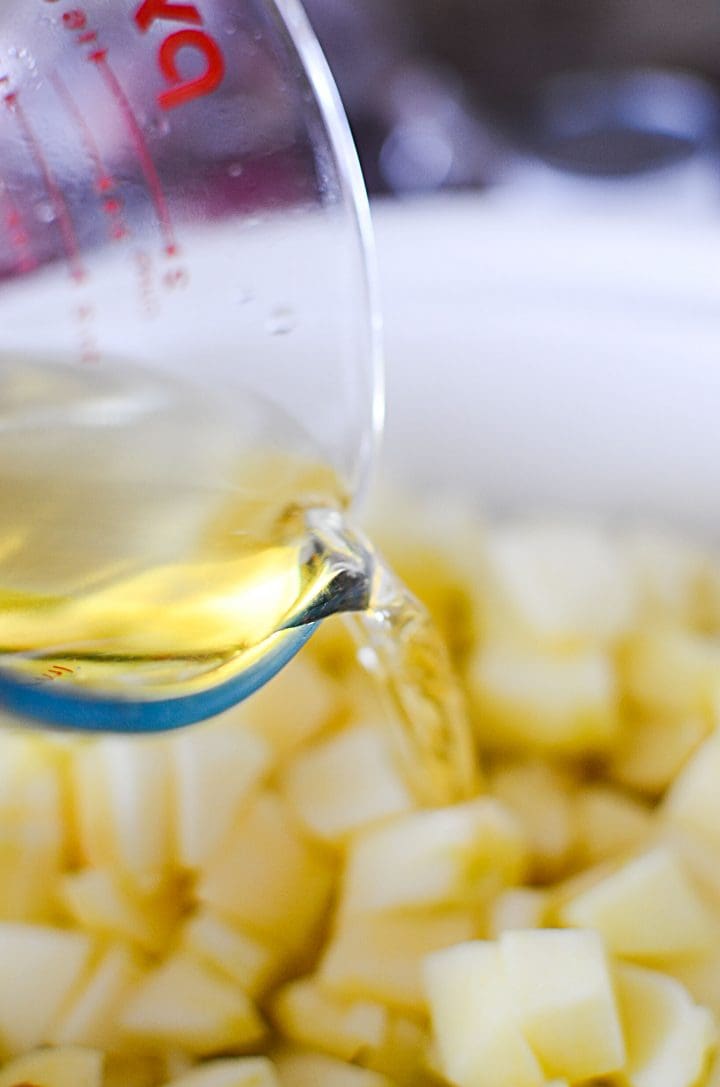
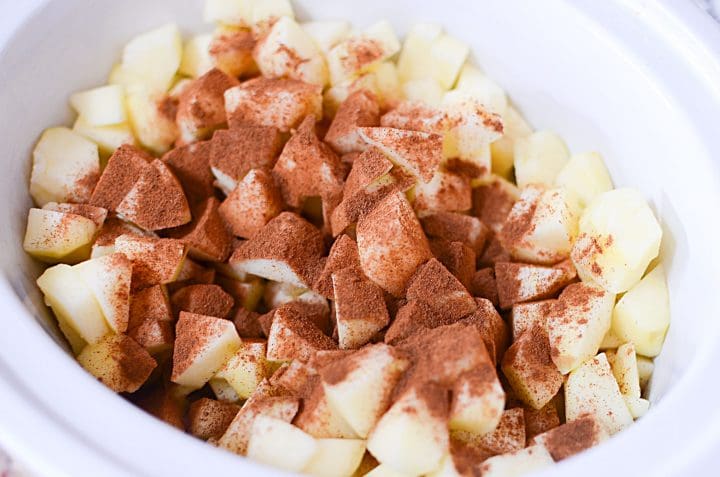



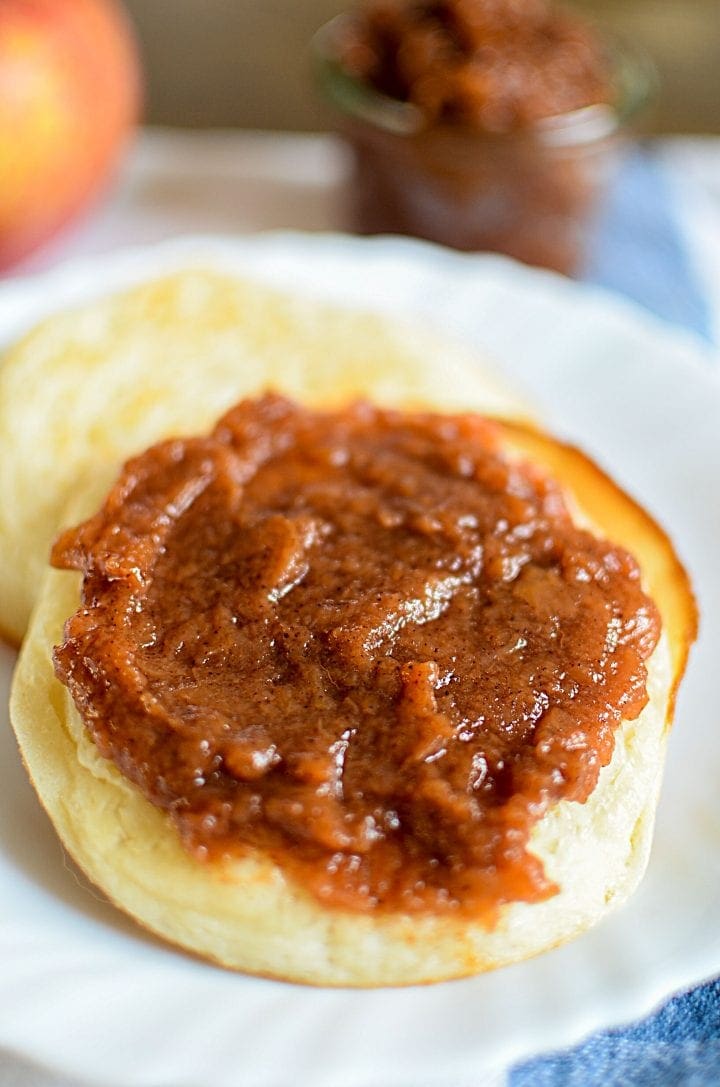
Apple Butter Crockpot Recipe
Directions
- Add the apples to your slow cooker bowl.
- Periodically stir the apples as they cook.
- Near the end of cooking, if there seems to be too much juice that is affecting the consistency of the butter, then remove the lid and turn the heat to high.
- Let cook for another hour or so to evaporate the extra liquid, but just keep an eye on it and continue to stir it from time to time to encourage more evaporation.
- Add the apple juice, add the salt, and sprinkle the cinnamon over top. Mix well.
- Cover and cook on low for 7 – 8 hours.

Crockpot Apple Butter No Sugar
Ingredients:
Directions:
- Add the apples to the your slow cooker bowl.
- Add the apple juice, add the salt, and sprinkle the cinnamon over top. Mix well.
- Cover and cook on low for 7 – 8 hours.
RECIPE NOTES: I would periodically stir the apples as they cooked. Near the end of cooking, if there seems to be too much juice that is effecting the consistency of the butter, then remove the lid and turn the heat to high. Let cook for another hour or so to evaporate the extra liquid, but just keep an eye on it and continue to stir it from time to time to encourage more evaporation.
The types of apples that you use will also affect the sweetness of the butter. I used Honeycrisp apples that are slightly tart but still sweet, and I found the butter was more than sweet enough for my liking. Other apples that are sweeter by nature, like McIntosh or Galas, will of course lend a sweeter butter. Whether you needed canning crockpot apple butter recipe, crockpot apple butter recipe no sugar, crockpot apple butter low sugar or even easy crockpot apple butter for canning, our homemade apple butter crockpot will not disappoint.
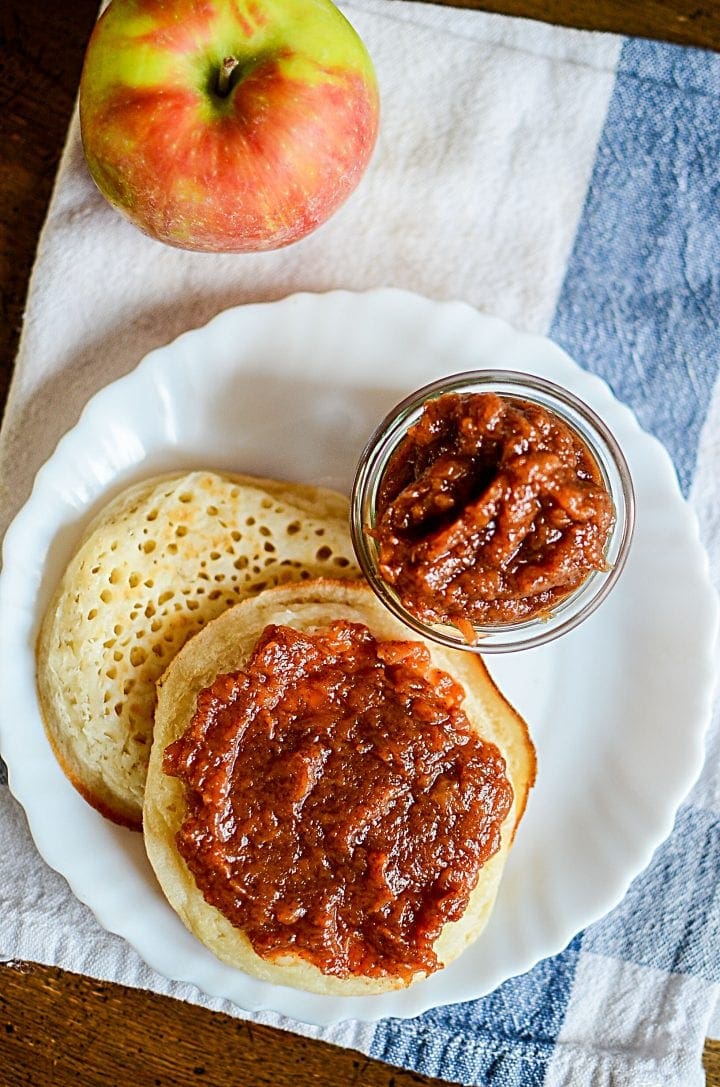
History of Apple Butter
Apple butter, that thick, rich spread with its concentrated apple flavor and warming spices boasts a history as sweet and complex as its taste.
Medieval Origins: The story likely begins in the Middle Ages (around 500-1500 AD) in the regions of Limburg (present-day Belgium and Netherlands) and Rhineland (Germany). Monasteries with vast apple orchards were the first known producers, using this method to preserve their apple harvests during a time without refrigeration.
Early Preparation: Back then, the process involved simmering large pots of apples with spices like cinnamon, cloves, and allspice for hours, slowly reducing them to a thick, spreadable consistency. This labor-intensive process often involved communal efforts, making it a social event as well.
DIY Flower Pot Apple ~ Perfect Back to School Craft
Colonial Journey: In the 17th century, European immigrants, particularly the Pennsylvania Dutch, brought this tradition to America. Apples were abundant in the colonies, making apple butter a practical and delicious way to preserve them. It quickly became a staple in colonial kitchens, often featuring at celebratory meals and potlucks. Its association with abundance and hospitality cemented its place in American culinary history.
Evolution and Adaptations: As America expanded westward, apple butter adapted to diverse regions. Sweetened versions became popular in the South, while spicier variations emerged in the Midwest. Local ingredients like corn syrup and molasses added unique twists. With the invention of canning in the 19th century, apple butter's primary purpose for preservation shifted. However, its popularity as a delicious spread endured, even evolving into commercially produced versions.
Modern Landscape: Today, apple butter continues to be a beloved part of American cuisine. From traditional recipes passed down through generations to modern interpretations by chefs, it remains a versatile and flavorful addition to breakfast tables, cheese boards, and even savory dishes. Beyond its culinary significance, apple butter represents various cultural aspects. It evokes feelings of home, family gatherings, and autumnal coziness.
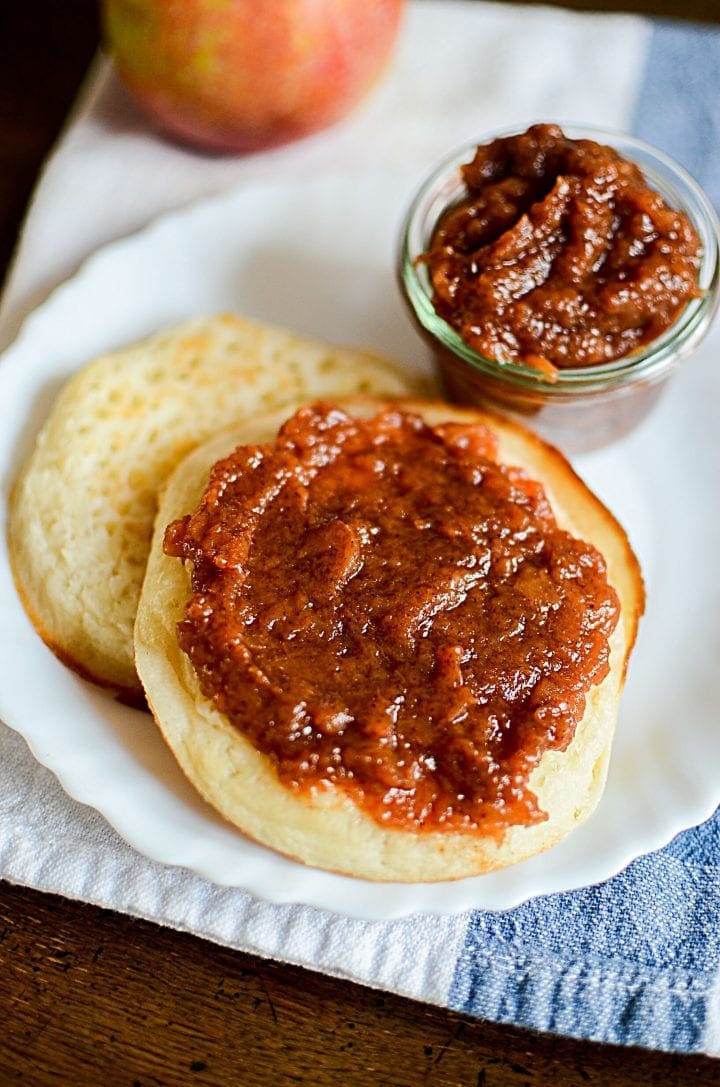
Apple Butter Recipe Variations
Apple butter offers a delicious blank canvas for experimentation, allowing you to explore various flavor profiles and ingredients to suit your preferences. Below we've shared some popular apple butter recipe variations to spark your inspiration.
Apple Butter Spiced Classics
- Pumpkin Spice Apple Butter: Infuse your apple butter with fall flavors like pumpkin puree, cinnamon, ginger, nutmeg, and cloves for a heartwarming autumnal spread.
- Cranberry Apple Butter: Add tart cranberries alongside your apples for a vibrant and tangy twist. This variation pairs beautifully with cheeses and charcuterie boards.
- Chai Spice Apple Butter: Elevate your apple butter with the warm and exotic flavors of chai spices like cardamom, black pepper, ginger, and star anise.
Caramel Apple Cupcakes with Cinnamon Cream Cheese Frosting
Apple Butter Fruity Fusions
- Apple Pear Butter: Combine apples and pears for a subtle sweetness and a hint of floral notes. You can further enhance this variation with a splash of pear liqueur or cider.
- Apple Berry Butter: Add berries like blueberries, raspberries, or blackberries for a burst of fruity sweetness and vibrant color. Adjust the spices accordingly to complement the chosen berries.
- Apple Fig Butter: This unique combination delivers a rich and complex flavor profile, with the sweetness of apples balanced by the earthy sweetness of figs. Drizzle with balsamic vinegar for an extra special touch.
Apple Butter Spicy Adventures
- Chipotle Apple Butter: Smoked chipotle peppers add a smoky heat and depth of flavor to your apple butter. Adjust the chipotle quantity to control the spice level.
- Jalapeno Apple Butter: For a milder kick, incorporate jalapenos for a subtle heat and a refreshing contrast to the apple sweetness.
- Harissa Apple Butter: This North African spice blend, with its blend of chilies, paprika, and spices, adds a unique heat and depth of flavor to your apple butter.
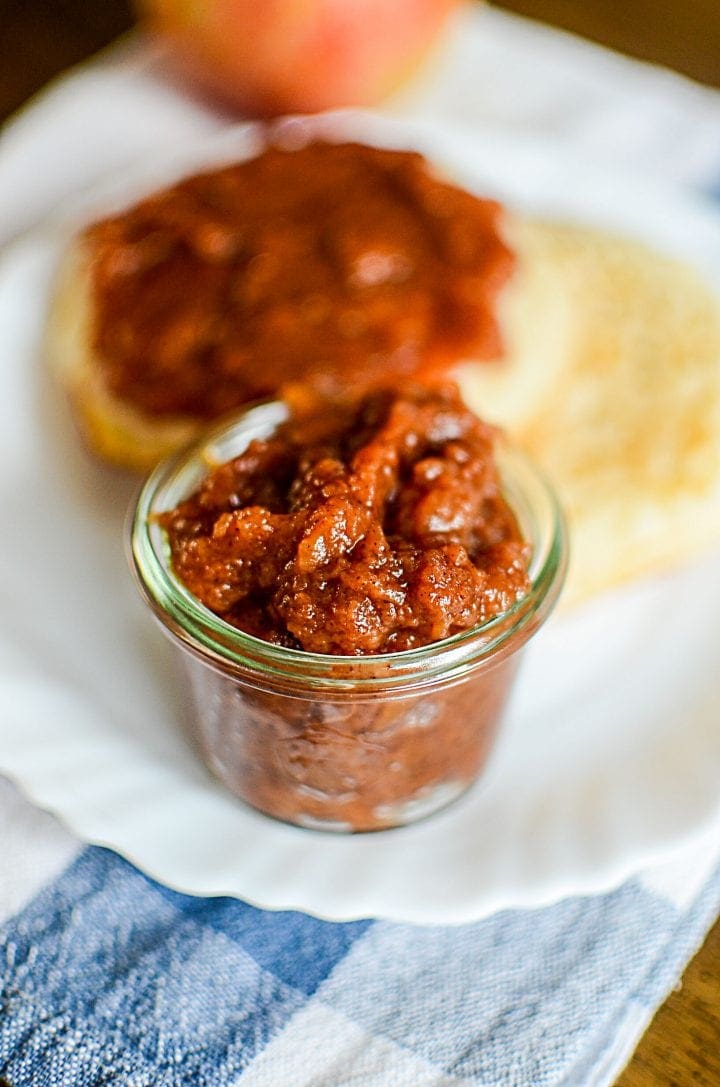
Apple Butter Savory Surprises
- Garlic Rosemary Apple Butter: Elevate your apple butter with savory notes by adding roasted garlic and fresh rosemary. This variation pairs well with grilled meats and roasted vegetables.
- Thyme and Onion Apple Butter: Fresh thyme and caramelized onions offer a savory twist to your apple butter, making it a versatile condiment for both sweet and savory applications.
- Mustard Apple Butter: Dijon mustard adds a tangy kick and complexity to your apple butter, creating a unique spread perfect for sandwiches and cheese boards.
Best Crockpot Hot Chocolate Recipe
Tips for Making Apple Butter
- Sweetness Level: Adjust the amount of sugar or other sweeteners to your liking. You can even use alternatives like honey or maple syrup for a different flavor profile.
- Spices: Experiment with different spice combinations to discover your favorites. Consider using whole spices for a more nuanced flavor and straining them out before finishing.
- Cooking Method: While traditional recipes simmer the apples for hours, modern interpretations utilize slow cookers or pressure cookers for a quicker and equally delicious outcome.
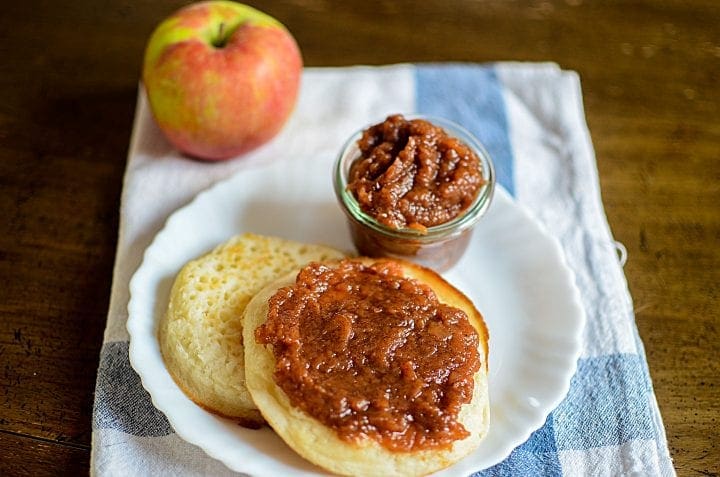
Apple Butter Crockpot Recipe
Apple butter's journey is a testament to the lasting power of culinary traditions, passed down through generations and adapting to new contexts. From its humble beginnings to its modern popularity, this sweet spread continues to warm hearts and tantalize taste buds. Remember that the types of apples that you use will also affect the sweetness of the butter. I used Honeycrisp apples that are slightly tart but still sweet, and I found the butter was more than sweet enough for my liking. Other apples that are sweeter by nature, like McIntosh or Galas, will of course lend a sweeter butter.

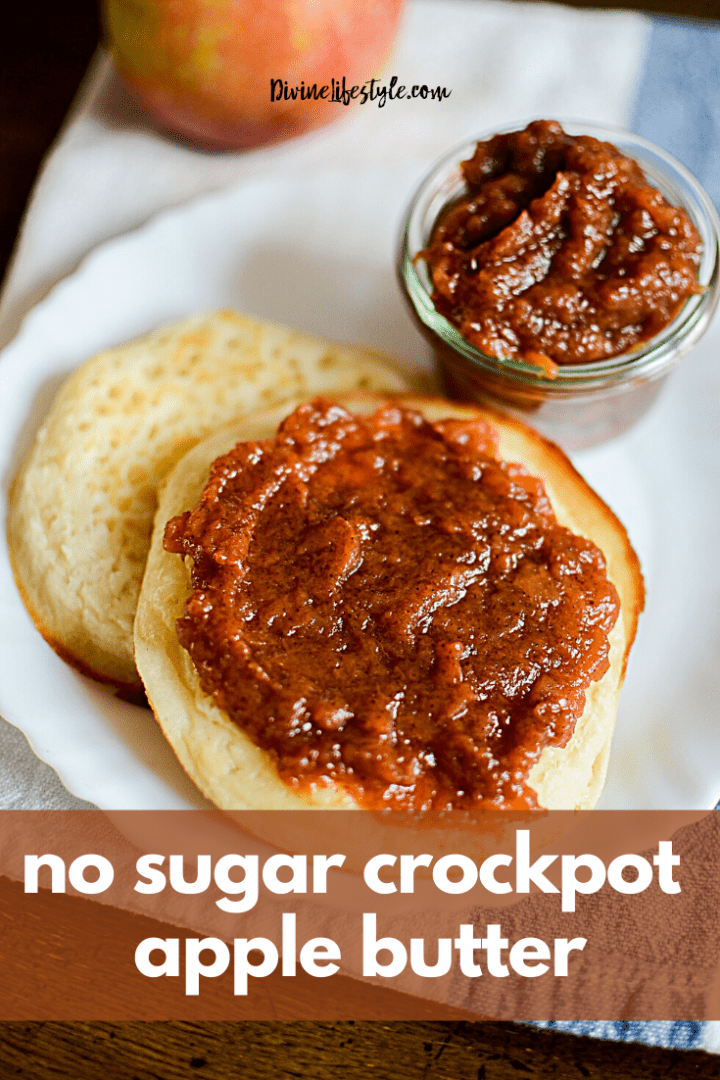
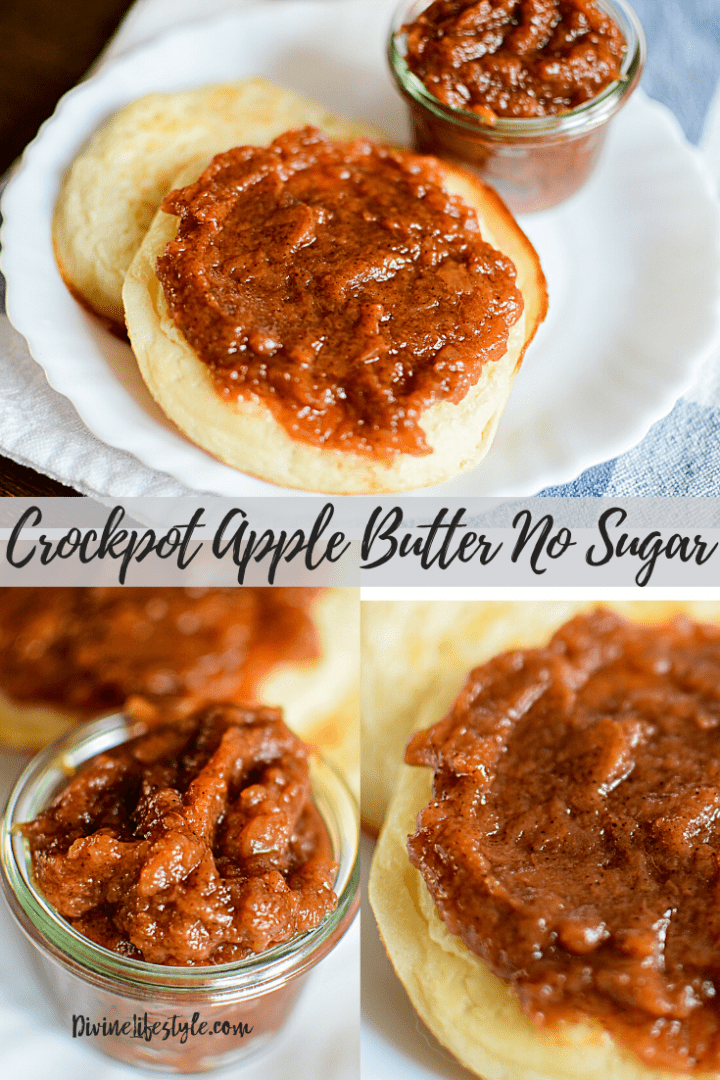
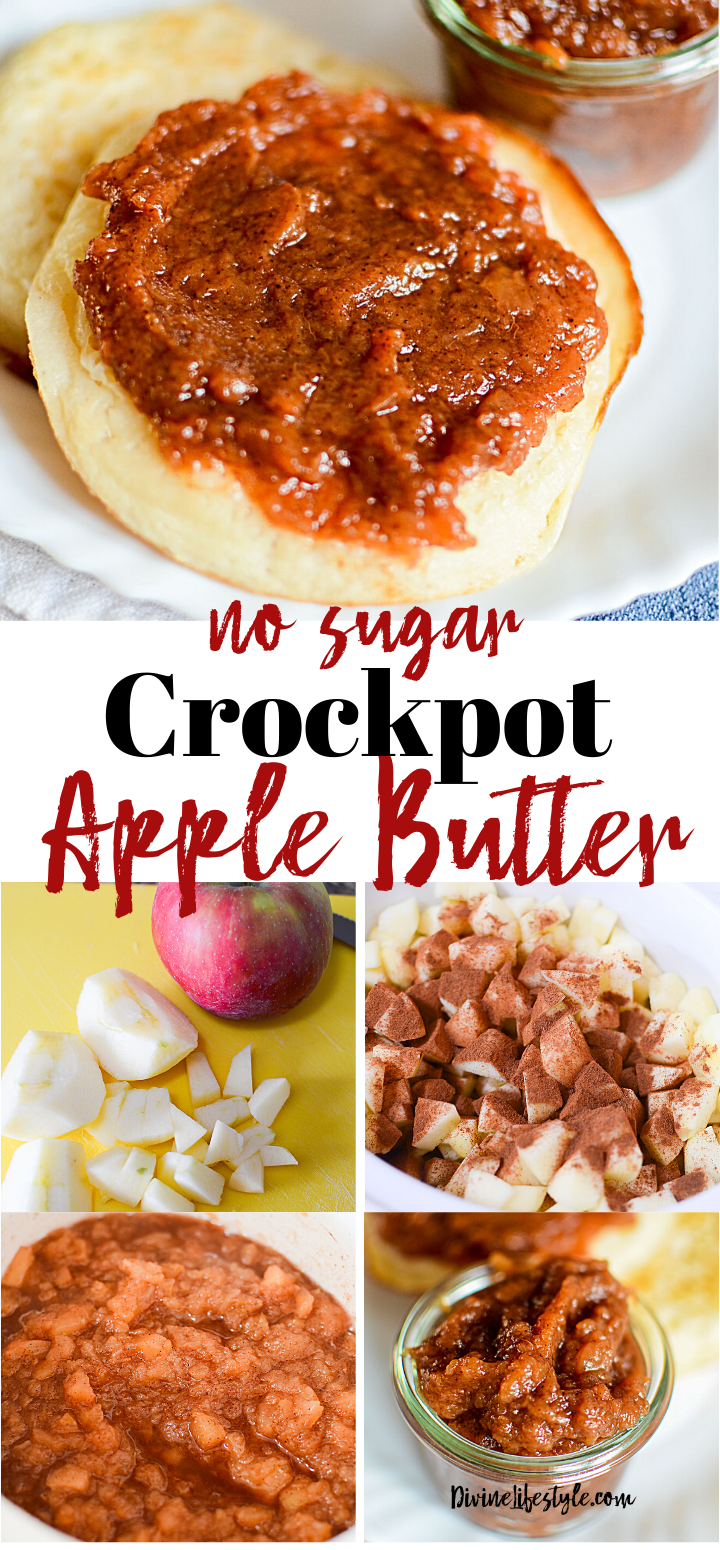
You May Also Like
























Pingback: Apple Fritters Recipe